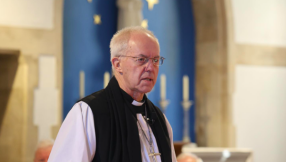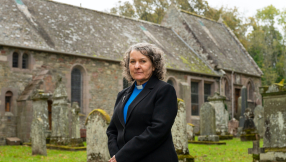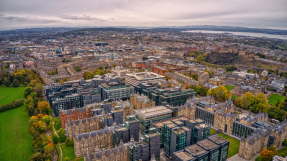Church World Service Calls on UN to Respond to Burma Violence
|PIC1|A UN Security Council met on Friday for the first time to address the increasing deterioration of Burma's civil life. The US, which requested the meeting, will issue a resolution on the situation soon.
A forthcoming report from the Thailand Burma Border Consortium (TBBC), of which CWS is a co-founder and an active partner, indicates figures of 470,000 internally displaced people (IDPs), 82,000 of them displaced by war or human rights abuses in the past year alone.
CWS is urgently calling for the U.N. Security Council (UNSC) to pass a resolution requiring Burma's military regime to stop attacking ethnic nationalities.
In addition, the global agency is calling for the U.N. Secretary General, Mr. Kofi Annan, to publicly condemn the latest attacks by the State Peace and Development Council (SPDC) on ethnic nationalities in eastern Burma.
In the past year, Burma's military regime, the SPDC has destroyed, relocated or forced abandonment of 232 villages, bringing the total to 3,077 in the last decade. About 95,000 IDPs currently live in hiding in the jungle, while 118,000 IDPs currently reside in 'relocation sites.' 257,000 IDPs are currently in 'ceasefire areas.'
CWS Executive Director and CEO John L. McCullough says, "This humanitarian nightmare has gone completely unaddressed by the U.N. Security Council, and is one of the world's least known."
Since the end of 2005, Burma's military junta has escalated attacks against civilians, in particular against the country's Karen ethnic minority. In early April, the SPDC attacked villages in Ton Oo and Yong Lay Pin townships, burning villages, destroying food supplies and committing atrocities. The attacks continue.
Up to 20,000 people have been driven from their homes in eastern Burma in this latest brutal 'anti-insurgency' campaign. Some have been tortured or killed.
Some observers believe these are the most serious attacks since 1997. Burma apparently is attempting to clear the territory east of Burma's new capital city of any ethnic armed groups, including the Karen National Union, along with ethnic nationalities¹ civilians. Burma's military regime continues its unrelenting suppression of political and ethnic opposition to its rule.
As a result, at least 700,000 refugees have fled Burma and another half million of Burma's more than 50 million citizens are internally displaced in eastern Burma alone.













